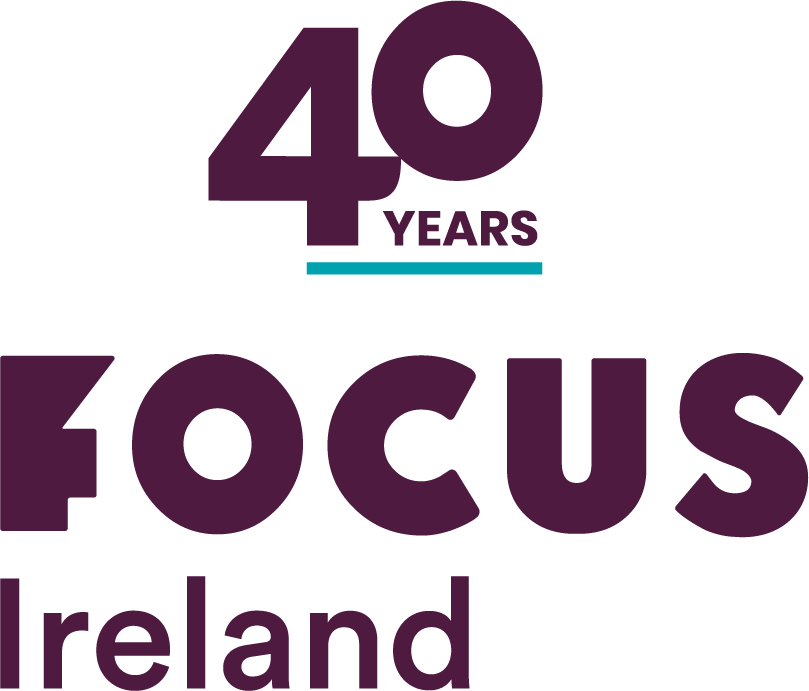Childcare is an essential support for lone parents experiencing homelessness
Author: Clár Johnston
Childcare is a significant issue for many families in Ireland in 2025. Affordability, capacity, staff shortages and long waiting lists are widely reported and the situation is often described as a childcare crisis. Given the strong commitments made in the Programme for Government to progressively reduce costs and add to capacity in the sector, childcare was anticipated to feature prominently in Budget 2026. While measures such as €125 million additional funding and the creation of 2,300 new Early Years places were welcomed, the Budget fell short of delivering the scale of investment required to address the ongoing crisis.
While accessing childcare is a challenge for many parents, these challenges can be particularly consequential for families experiencing homelessness, especially one-parent families. A lack of childcare support has the potential to prevent families from exiting homelessness or increase the risk of becoming homeless in the first place.
57% of families currently residing in emergency accommodation are one-parent households. As seen in the below graph, this overrepresentation has been a constant feature of homelessness data for many years with the number rising to an all-time high in September of this year. Furthermore, the enforced deprivation rate for one parent families is almost three times the rate for two-parent families however, access to quality paid employment or further education and training as a pathway out of poverty is limited for this group without access to adequate childcare supports. It creates additional challenges for families experiencing homelessness in terms of attending property viewings, appointments with local authorities and other essential steps towards securing housing. Without the right supports, these tasks are completely impractical for lone parents and can lead to prolonged periods spent in homelessness.

Challenges
Staying in emergency accommodation poses unique and complex challenges for working lone parents trying to balance childcare and employment, especially those working in sectors with irregular shifts like hospitality, retail, and care. Many emergency accommodation providers do not permit external visitors, including family and friends, making it is almost impossible to have informal childcare arrangements in place. In addition, strict rules in most settings that prohibit teenagers under 18 years from staying in the premises unsupervised create additional barriers forcing parents to either remain in their accommodation or seek out afterschool activities that are often unaffordable or unavailable.
While targeted measures under the National Childcare Scheme (NCS) are a vital support to many low-income families, including those in emergency accommodation, current measures don’t stack up against the present issues in the childcare sector.
Despite an increase in the NCS universal childcare subsidy in 2024, the threshold for the means-tested subsidy has not risen in line with multiple increases to the national minimum wage and some social welfare payments that are not included in the income disregard, such as the Working Family Payment. This outdated threshold means that low-income families are at risk of losing their existing childcare supports if their income exceeds €26,000 per year.
More targeted supports, such as the NCS sponsored subsidy for families experiencing or moving out of homelessness are crucial for parents dealing with the stress of staying in emergency accommodation. Under the Childcare Support Act 2018, Local Authorities provide sponsorship for an agreed number of hours of childcare which is based on a national flat fee. Unfortunately, current subsidy rates often fall short of the fees charged by private providers – the only option for many parents due to a shortage of community childcare places. As top-up payments and deposits are prohibited under the scheme, some private services cap the number of sponsored places, especially in areas of high demand. While providers in receipt of state funding are not allowed to refuse children on this basis, it is common practice due to the fact that subsidy rates do not cover costs. Refusals and the requirement to disclose financial supports can often leave parents feeling stigmatised, further exacerbating the stress and trauma of homelessness.
At the end of this sponsored year, families who have managed to exit homelessness are no longer eligible for this support putting them at risk of losing existing childcare supports due to high costs. Moving into a new home can be a financial shock to the system especially for families that have spent several years living in homeless accommodation. Managing utilities, school, transport, and the high cost of living can be extremely challenging for low-income households. The loss of childcare supports at such a critical time of transition can be extremely damaging.
Solutions
Until the core issues in the childcare sector are addressed, one parent families experiencing homelessness need to be supported to access early childhood education and care. Sponsored subsidy rates need to align with local private childcare fees if parents are to have a chance of securing a place for their child. Extending the eligibility period for those exiting homelessness would also be a major support for families as they adjust to life after homelessness.
The current NCS threshold undermines the government’s targeted supports for low-income families. Index-linked thresholds would be a more sustainable means of supporting low-income families, and lone parents in particular, to access the childcare supports they need.
The overrepresentation of one parent households in emergency accommodation as well as deprivation rates for this group, demonstrate the need for adequate childcare supports to mitigate the increased risk of poverty for parents and their children. Despite increased public funding, fees for early childhood education and care in Ireland remain some of the highest in Europe. In addition, Ireland does not guarantee a childcare place for all children unlike most other European countries. One-parent families living in emergency accommodation will continue to be further disadvantaged by the childcare crisis until targeted measures are reviewed and improved to ensure that the right supports are getting to the families most in need.

